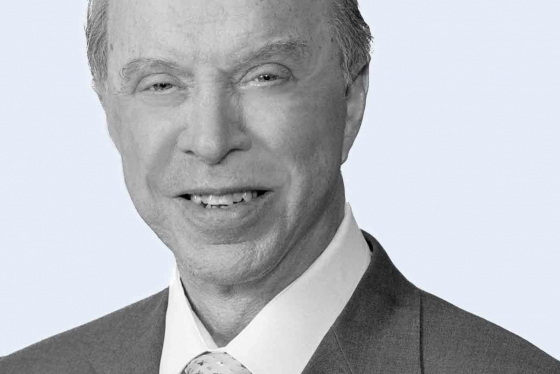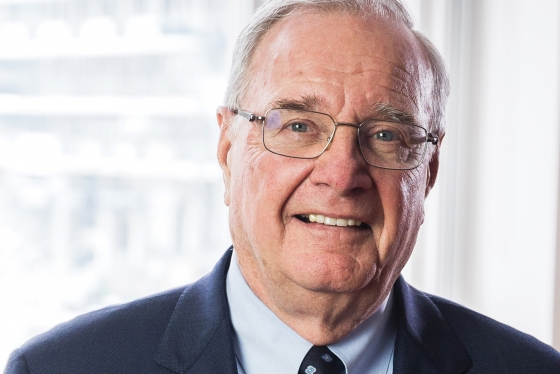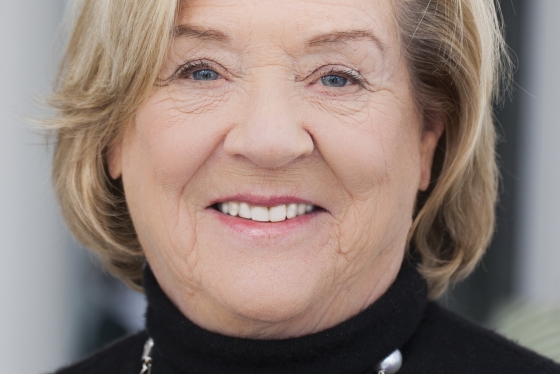Michael Wilson
Bachelor of Commerce (BCom) 1959, Trinity College Honorary Doctor of Sacred Letters (Hon. DSL) 1994, Trinity College Honorary Doctor of Laws (Hon. LLD) 2005
Michael Wilson has gained international respect as an accomplished public servant of unquestioned integrity, and as a businessman who had the vision to foresee the economic crisis in North America. He is admired also for his outstanding work in shining a light on the issue of mental illness.
Wilson became U of T’s 33rd Chancellor on July 1, 2012, succeeding David Peterson. He had also served as Chancellor of Trinity College from 2003 until 2006.
Born in Toronto, Wilson was first elected to Parliament in 1979 after a career as an investment executive. He served as Prime Minister Brian Mulroney’s minister of finance for seven years after the Progressive Conservatives won the 1984 federal election. From 1991 to 1993 he was minister for international trade and minister of industry, science and technology. In 1993 he returned to Bay Street to head his own consulting and financial services firm. He later rejoined the Royal Bank of Canada and became Chairman of Barclays Capital Canada Inc.
Prime Minister Stephen Harper appointed him Ambassador to the United States in 2006, a post he held for three-and-a-half years.
In an interview with U of T Magazine, Wilson said one of his challenges as Chancellor is to make sure U of T conveys to alumni, friends, corporations and foundations — the University’s key volunteer leaders and chief private financial supporters — its immense global impact in virtually every field.
"We have a great many supporters. We just have to keep that spirit alive within them -- and that comes from making sure they have exposure to the good work that is done at U of T."
His dedication to making Canadians more aware of the issues surrounding mental illness goes back more than two decades, and he has been a major supporter of the Centre for Addiction and Mental Health (CAMH).
Wilson has worked hard to engage the business community in mental health issues, including being involved in the Global Business and Economic Roundtable on Addiction and Mental Health. That organization has worked to highlight the huge human costs of mental illness and the loss of productivity that comes with ignoring it in the workplace.
In an interview with Good Times magazine, Wilson said “mental illness is a very heavy burden and we have to get over thinking that it is a weakness, that it is a character flaw and realize that it is an illness…. So the more we can be open about this, the more we can address the stigma that isolates people.”
Published Dec. 9, 2013.






